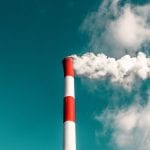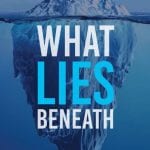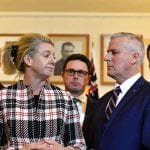Around The Web
Capitalism alone cannot reverse climate change | Letters
Larry Elliott rightly directs our attention to the impending perils of climate change and to some of the impediments to their avoidance (Capitalism can crack climate change. But it must take risks, 16 August). His suggested solution “that the world needs to wage war against climate change” misses the most important component. Climate change is driven by climate changers: you and me and 7.6 billion fellow humans, increasing by 83 million a year and with effects on much more than climate change.
Benign and non-coercive means to reverse that growth, to achieve something like the 2.5 to 3 billion that experts estimate the planet could sustainably support, are well known. They include the much wider and free provision of reproductive health services, including family planning, to all who need them, and of both general and health education especially to the large number of the world’s girls currently denied them.
Richard Vernon
Oxford
Analysts up EUA forecasts as speculators still seen hungry to buy
RSPB under fire over parking charge plans in Anglesey reserve
Locals say wildlife charity acting like a ‘corporate monstrosity’ over £5-a-day fee
The RSPB has been accused of acting like a “corporate monstrosity” for attempting to impose parking charges at one of north Wales’ most scenic birdwatching locations.
The Royal Society for the Protection of Birds plans to charge £5 a day for peak season visits to the South Stack reserve in Anglesey, despite renting the 780 acres of public land for just £7.
Continue reading...Climate Change Consultant, Itad – Brighton & Hove, East Sussex
Midwest Climate & Energy Policy Advisor, the Nature Conservancy – Multiple Locations
Senior Analyst, US Climate Policy, EDF – Washington DC
Global Director, Climate Programme, WRI – Multiple Locations
2018 bird photographer of the year – in pictures
Pedro Jarque Krebs from Peru scoops the top prize of £5,000 for his vibrant image of American Flamingos preening
Continue reading...Summer weather is getting 'stuck' due to Arctic warming
Rising arctic temperatures mean we face a future of ‘extreme extremes’ where sunny days become heatwaves and rain becomes floods, study says
Summer weather patterns are increasingly likely to stall in Europe, North America and parts of Asia, according to a new climate study that explains why Arctic warming is making heatwaves elsewhere more persistent and dangerous.
Rising temperatures in the Arctic have slowed the circulation of the jet stream and other giant planetary winds, says the paper, which means high and low pressure fronts are getting stuck and weather is less able to moderate itself.
Continue reading...NEG U-turn leaves Australian energy industry, investors reeling
Myth, mystery and the tide of change: Jasmin Vardimon's Medusa – in pictures
In her new show, the choreographer Jasmin Vardimon uses the Greek myth of Medusa to explore womanhood and our ecological future. Tristram Kenton photographed the rehearsals in Sitges
Continue reading...States and Territories react to NEG changes
Calls emerge for New Zealand to raise carbon price ceiling immediately
Anti-pollution activists stage protest at Volkswagen's UK headquarters
Campaigners and doctors set up ‘sick bays’ to highlight diesel emissions health risks
Doctors and anti-pollution activists have blockaded the UK headquarters of Volkswagen as the campaign to highlight the country’s air pollution crisis gathers pace.
Hundreds of staff were prevented from getting into VW’s head office in Milton Keynes by doctors and other medics who, with Greenpeace activists, set up “sick bays” at entrances to highlight the damage VW diesel vehicles are doing to people’s health.
Continue reading...The too hard basket: a short history of Australia's aborted climate policies
Musk says $25,000 Tesla EV possible in “about three years”
 Tesla CEO says the company could "maybe ... in about three years" deliver an EV for a price tag of just $US25,000 – but it won't be easy.
Tesla CEO says the company could "maybe ... in about three years" deliver an EV for a price tag of just $US25,000 – but it won't be easy.
The post Musk says $25,000 Tesla EV possible in “about three years” appeared first on RenewEconomy.
“NEG is dead” without emissions target, says ACT
 COAG energy council member and ACT climate minister Shane Rattenbury declares the NEG "dead," killed off by Turnbull's complete capitulation on emissions and climate.
COAG energy council member and ACT climate minister Shane Rattenbury declares the NEG "dead," killed off by Turnbull's complete capitulation on emissions and climate.
The post “NEG is dead” without emissions target, says ACT appeared first on RenewEconomy.
Death by tailpipe emissions: What number is acceptable?
 There are many sections of industry and the public that can see the benefits of electric transportation; unfortunately we have a small group of politicians that believe otherwise.
There are many sections of industry and the public that can see the benefits of electric transportation; unfortunately we have a small group of politicians that believe otherwise.
The post Death by tailpipe emissions: What number is acceptable? appeared first on RenewEconomy.
Take unprecedented action or bear the consequences, says eminent scientist and advisor
 “Climate change is now reaching the end-game, where very soon humanity must choose between taking unprecedented action, or accepting that it has been left too late and bear the consequences.” Those are the challenging words from Prof. Hans Joachim Schellnhuber, for twenty years the head of the Potsdam Institute for Climate Impact Research, and a...
“Climate change is now reaching the end-game, where very soon humanity must choose between taking unprecedented action, or accepting that it has been left too late and bear the consequences.” Those are the challenging words from Prof. Hans Joachim Schellnhuber, for twenty years the head of the Potsdam Institute for Climate Impact Research, and a...
The post Take unprecedented action or bear the consequences, says eminent scientist and advisor appeared first on RenewEconomy.
“I am not afraid to say the c-word, coal, coal, coal”- Nationals deputy
 Nationals celebrate ditching of emissions targets from NEG and a push for new dispatchable generation: "Coal, coal, coal," says the deputy leader.
Nationals celebrate ditching of emissions targets from NEG and a push for new dispatchable generation: "Coal, coal, coal," says the deputy leader.
The post “I am not afraid to say the c-word, coal, coal, coal”- Nationals deputy appeared first on RenewEconomy.



